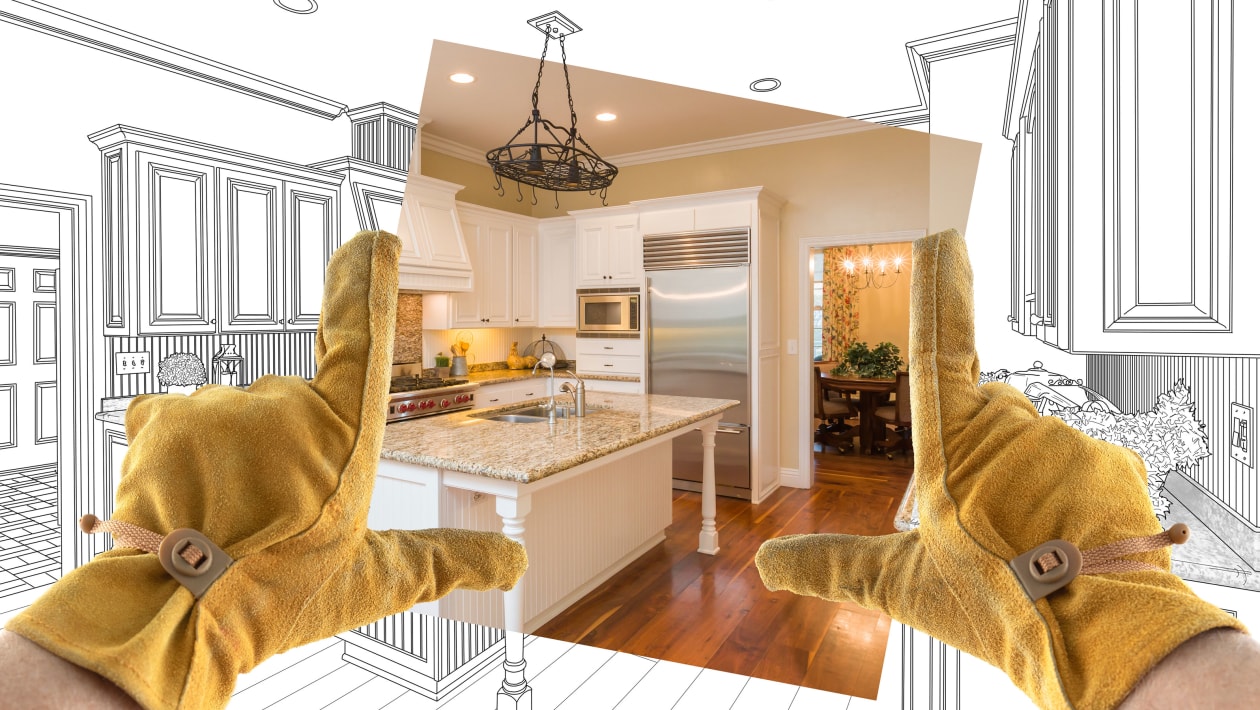 According to the Leading Indicator of Remodeling Activity (LIRA) released by the Remodeling Futures Program at the Joint Center for Housing Studies of Harvard University, expenses for improvements and repairs to owner-occupied housing stocks are expected to increase throughout 2022 and into early 2023 – but gradually, at a decelerating pace.
According to the Leading Indicator of Remodeling Activity (LIRA) released by the Remodeling Futures Program at the Joint Center for Housing Studies of Harvard University, expenses for improvements and repairs to owner-occupied housing stocks are expected to increase throughout 2022 and into early 2023 – but gradually, at a decelerating pace.
The LIRA projects year-over-year increases in residential renovation and maintenance spending will peak at 19.7% in Q3 of this year before sliding downward to 15.1% in Q1 of 2023.
“Massive increases in house price appreciation and the resulting levels of tappable home equity will continue to support remodeling activity this year and into next,” says Carlos Martín, Project Director of the Remodeling Futures Program at the Center. “Many other market indicators including existing home sales, renovation permitting, and retail sales of building materials also continue to grow at high, albeit slowing, rates.”
Column and line chart providing quarterly historical estimates and projections of homeowner improvement and repair spending from Q4 of 2019 to Q1 of 2023 as four-quarter moving sums and rates of change.
Year-over-year spending growth held steady at 1-3% from Q4 of 2019 to Q4 of 2020 followed by a gradual acceleration to 11.5% in Q1 of 2022; growth is projected to accelerate faster to a peak of 19.7% through Q3 of 2022 before softening to 15.1% in Q1 of 2023. Annual spending levels are expected to increase from $391 billion through Q1 of 2022 to $449 billion through Q1 of 2023.
“The level of annual expenditures for home improvements and repairs is set to expand to nearly $450 billion by the first quarter of 2023,” says Abbe Will, Associate Project Director of the Remodeling Futures Program. “Yet, the rising costs of project financing, construction materials, and labor, as well as growing concerns about a broader economic slowdown or recession may further slow remodeling growth.”
The Leading Indicator of Remodeling Activity (LIRA) provides a short-term outlook of national home improvement and repair spending to owner-occupied homes. The indicator, measured as an annual rate-of-change of its components, is designed to project the annual rate of change in spending for the current quarter and subsequent four quarters, and is intended to help identify future turning points in the business cycle of the home improvement and repair industry. Originally developed in 2007, the LIRA was re-benchmarked in April 2016 to a broader market measure based on the biennial American Housing Survey.
The LIRA is released by the Remodeling Futures Program at the Joint Center for Housing Studies of Harvard University in the third week after each quarter’s closing. The next LIRA release date is July 21, 2022.
The Remodeling Futures Program, initiated by the Joint Center for Housing Studies in 1995, is a comprehensive study of the factors influencing the growth and changing characteristics of housing renovation and repair activity in the United States. The Program seeks to produce a better understanding of the home improvement industry and its relationship to the broader residential construction industry.
To read the full report and for more detail, click here.

 theMReport.com Your trusted source for mortgage banking news
theMReport.com Your trusted source for mortgage banking news








